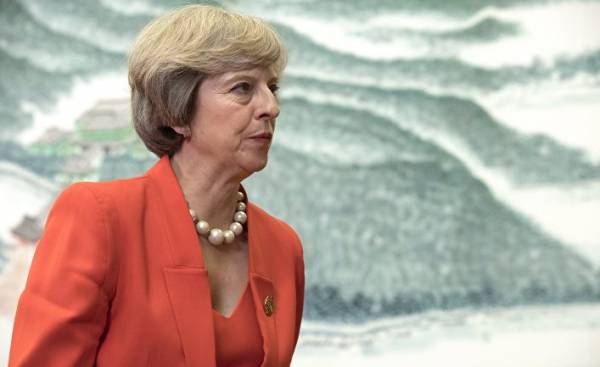
On Thursday evening, Prime Minister Theresa may made a “fair and serious offer” to 27 EU countries. The proposal “provides that EU citizens who moved to the UK, such a degree of security which is only possible while they build their careers and contribute to our society”.
The question of what happens with more than three million EU citizens living in the UK, after Breccia, remains one of the main points in the negotiations. Conservatives want to give them the same rights enjoyed by British citizens if at the time they lived in Britain for at least five years. Foreigners from the EU with a shorter period of residence may apply after five years.
It’s generous at first glance, the offer by which the victim failed, the Prime Minister wanted to create a good mood in Brussels.
But it is not so obvious points. So, Theresa may once again categorically opposed to after Brexia the European court of justice watched over the observance of the rights of EU citizens.
According to London, it will have to deal only with British courts. “We will leave the jurisdiction of the court of the EU. Our laws will not be interpreted by the judges in Luxembourg,” said Mae in January in his keynote speech. This position was endorsed by the hard-liners in Breccia.
After the election on 8 June, to Mei no longer has a parliamentary majority, so now she’s trying to form a coalition with the party of Northern Ireland (DUP) to obtain at least a relative advantage.
Given this complex situation, it may be dependent on a large number of supporters of hard line among conservatives. But their claims in matters of justice is incompatible with the position of the Europeans.
Just last week a group of the EU Commission on the issue of Brexia presented its policy document, which definitely confirms the permanent jurisdiction of the EU.
“We believe that judges can only be in Luxembourg,” — said in Brussels. This requirement resonates among member States of the EU and in the European Parliament. “EU citizens moved to the UK, believing that the ECJ guarantees their rights. This guarantee “can not be revoked retroactively,” they say in parliamentary circles.
Another dispute about the date
There is another controversial point. London plans to install 29 March 2017 a starting point for the period of stay of EU citizens. On this day, the conservative government launched the process output, using article 50 of the Lisbon Treaty.
But in Brussels, many insist that time should start to count since the actual British exit from the EU, that is, on 30 March 2019.
At the summit EU leaders are very cautious comment on the “fair deal” of the British. German Chancellor Angela Merkel has called the proposal “a good start”. But, she said, is “still a lot of questions.” “We have a lot of things,” she said.
Now we need to wait for Monday, when the British government will present its detailed plans on this issue. And the time allotted for negotiations, inevitably comes.







